From Aboyne to Zorra: Jeannie Campbell’s new series on historical competitions begins with the Boston and Dundee Highland Gatherings
We’re pleased to launch “From Aboyne to Zorra,” a new series of features by Jeannie Campbell, MBE that takes a look back at historical Highland games and gatherings from around the world. These are fascinating pieces that revisit piping and drumming competitions of the past in the United States, Canada and, of course, Scotland, bringing back into to light the competitors and organizers that helped shape what we do today.
The series starts with the Caledonian Club Games in Boston and Scotland’s Dundee Highland Games.
From Aboyne to Zorra – Boston and Dundee
By Jeannie Campbell, MBE
The Highland Gatherings in Boston, Massachusetts, and Dundee, Scotland, of the 1800s have many similarities. Both began around the same time, both were in cities and both were organized by Highland Societies or Clubs that also held meetings, concerts and other events in addition to the annual games.
Boston
In March 1853, a meeting was held under the chairmanship of Alexander Wilson and this resulted in the formation of the Boston Caledonian Club. The first annual games took place in October 1853 at a field in Roxbury, Massachusetts, belonging to David Miller, a member of the club. The medals and cash prizes were provided by subscription among the members. Events included a three-mile running race and other track and field sports. The second and third annual games were held at Quincy. The fifth annual games were on 6th November 1857 in David Miller’s grounds at Roxbury.
On October 16th 1861 the annual games were at Fresh Pond, Cambridge. Soon after, Pipe-Major McCuish, a member of the Club enlisted for the Civil War. Other club members had also enlisted. In February 1866 the Club was reorganized and in August 1868 it amalgamated with another local organization, the Scottish Club. The new chief was William Kerr.
In 1869 the Club had its annual festival on the July 24th, the anniversary of the Battle of Bannockburn.
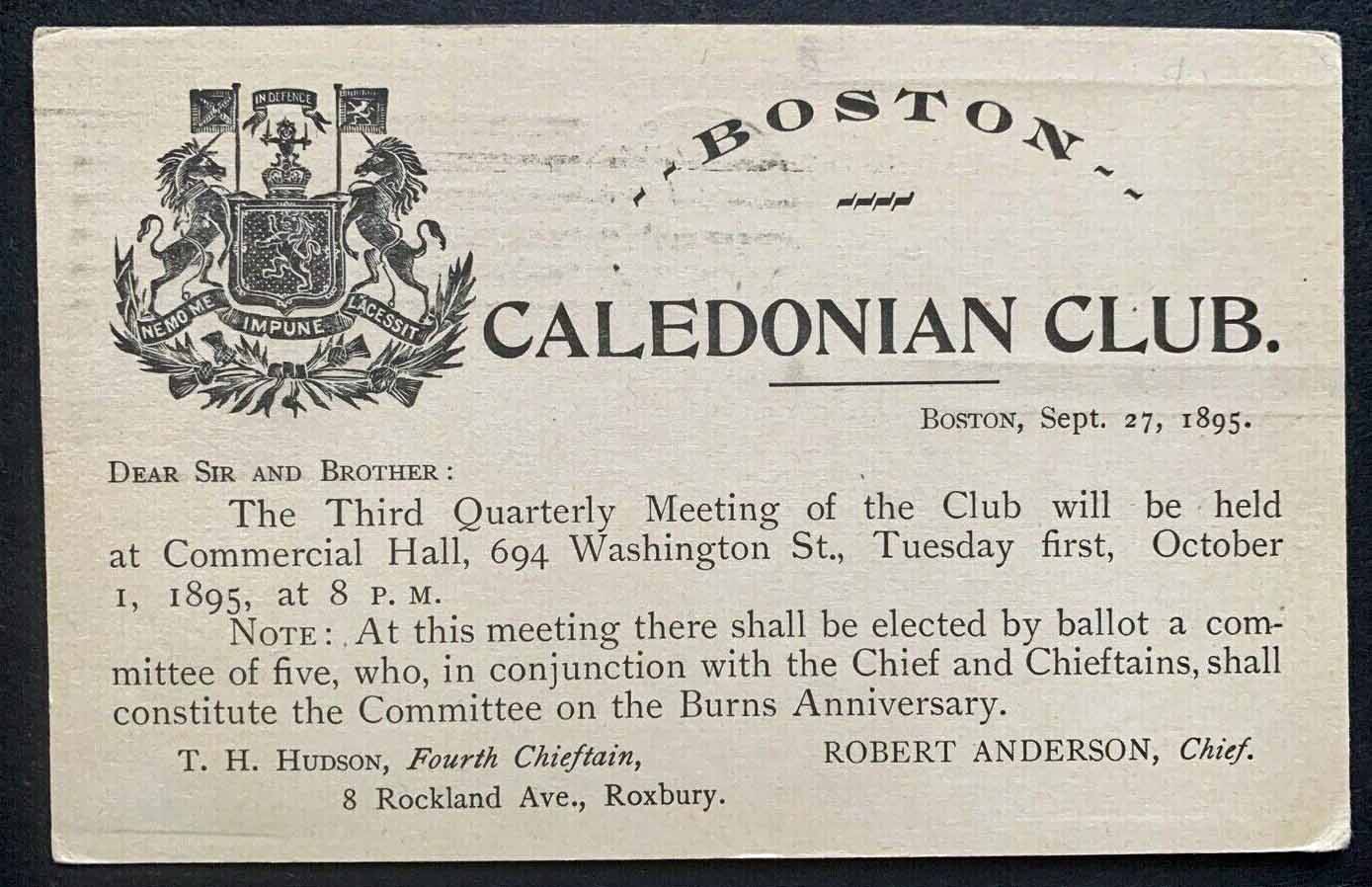
In 1870 the annual gathering was on August 25th. Donald Dinnie, the famous heavyweight athlete, was among the guests, and the attendance of visitors was about seven thousand, the largest assemblage the Club has ever had.
There is a jig titled “The Boston Caledonian Club” composed by Edwin Christie for the fiddle and published in Ryan’s Mammoth Collection in 1883.
In 1890, the 37th annual gathering and games was attended by 10,000 people. The most popular event the day was the five-mile race that created much excitement.
In January 1905, the Boston Caledonian club celebrated the anniversary of the birth of Robert Burns with a grand concert and ball. The Massachusetts Highland Dress Association pipe and drum band provided music for the concert.
In 1909, the annual picnic and games on Saturday 7th August, proved highly successful, with a great gathering of people.
In 1912, the celebration of the 153rd anniversary of the birth of Burns was presided over by the Club Chief James A. Sinclair, an Orcadian.
More than 10,000 people attended the 63rd Scottish picnic hosted by the Boston Caledonian Club at the West Roxbury Grove on Saturday, August 5, 1916. There were 39 athletic and cultural events, from track and field and football to Scottish dancing and bagpipe competitions. Mayor James Curley addressed the crowd briefly and enjoyed the activities. He was so pleased with the dance of one of the girls that he gave a personal prize. In addition to the sports and cultural competitions, three prizes were also awarded for Best Dressed Highlander, which was won by George A. Mitchell.
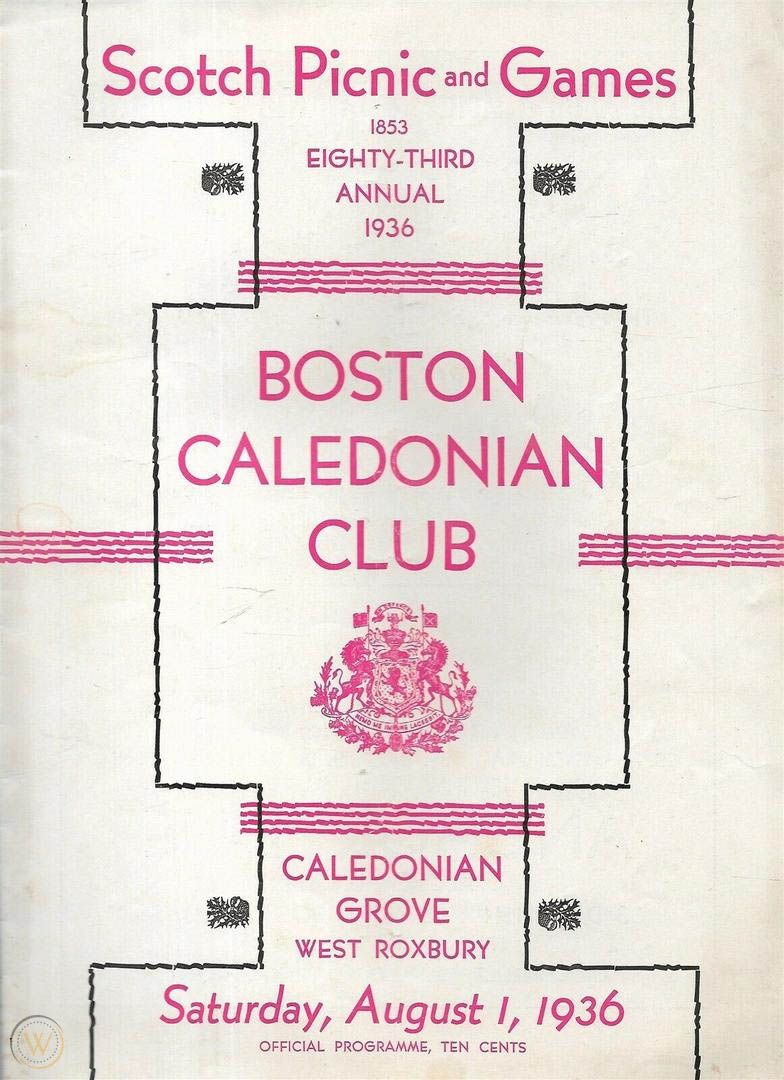
The Caledonian Club Games on August 1, 1936, were described as the 83rd annual games. The results were: Bagpipe Competition (Marches, Strathspeys and Reels): 1. Angus Murdoch; 2. William Adamson; 3. Roderick Thompson. Bagpipe Competition (Strathspeys & Reels): 1. Angus Murdoch; 2. William Adamson; 3. Everett MacLean.
Also reported were the results of the Clan Games Boston, Mass USA on September 7, 1936.
Bagpipe for men: Won by Geo Ritchie; second, W Adamson; third, Angus Murdoch.
Women’s bagpipe competition: Won by Louise Graham Campbell; second, Annie Cooper; third, Gertrude Graham. Men’s bagpipe competition (strathspeys and reels): Won by George Ritchie; second, W. Adamson; third, Angus Murdoch. Pipe band competition: Won by Boston Scottish Highlanders Band; second, Caledonian Club Band; third, Camp Parker Band (Lynn). Best appearing band won by Boston Scottish Highlanders Band; second, Caledonian Club Band; third, Camp Parker Band.
At the Boston Caledonian Club Games in 1938 the piping results were, Bagpipe Competition for Clubs: 1. Boston Scottish Highlanders; 2. Boston Caledonian Club. Marches, Strathspeys and Reels: 1. George R Duncan; 2. Angus Murdock; 3. Andrew Sinclair. Four-part March members only: 1. Angus Murdock; 2.William Adamson; 3. Frank Henry. March, for persons over 16 years: 1. John MacIvor; 2. Norman Nicholson; 3, Warren Smith. Bagpipe playing for Men, marches: 1. Donald Buchanan; 2. Andrew Sinclair; 3. Angus Murdock. Strathspeys: 1. Donald Buchanan; 2. George Ritchie; 3. Malcolm Buchanan. Pipe Band Contest: 1. Boston Scottish Highlanders; 2. Boston Caledonian Club Band; 3. Camp Parker, Lynn. Best Appearing Band: Boston Scottish Highlanders.
In 1938, Piping & Dancing magazine reported, “The Clans Games at Boston, this year, had the largest attendance in 10 years. The Caledonian Club games, held this year in July, had a very small crowd. The Clans Games at Boston, seem more inclined to feature the Highland events, in the belief that when you have Scottish Games, that should be the main attraction. Their beliefs seem to be well founded, as despite the terrible mass of unemployment here, fully 8,000 was in attendance.”
According to writer Emily Ann Donaldson in her book, The Scottish Highland Games in America, the Boston Caledonian Club sponsored games for more than a century; the last one was held in September 1956 at Brookline Town Field. However a newspaper report in 1959 stated that at the 50th annual games of the Boston Caledonian Club, Mr. James Caithness, a young Brechin athlete, was a successful competitor.
Dundee
Interest in piping in the city of Dundee was encouraged by the Highland Societies and Associations. The Dundee Highland Society was constituted September 23, 1814, with the stated purpose of supporting poor Highlanders in Dundee. The 1834 Dundee directory doesn’t list a DHS Piper or Warder, but it does give the name John Bogue as Treasurer of the Ancient Caledonian Society. The 1837-’38 directory says that the Ancient Caledonian Society’s Piper was James Simpson. John Bogue appeared as Piper/Officer to the Dundee Highland Society in the directories of 1842-43, 1845, 1846-47, and 1850. The Dundee Highland Association was founded in 1856 and was described in the directory entries from 1858 to 1862 as: “For relieving destitute stranger Highlanders in Dundee, encouraging the dress, music and games of the Highlanders, and advocating and supporting the interests of Highlanders wherever or whenever at stake. Chief His Grace the Duke of Athole, President John McDonald, Vice President John Conacher, Secretary John Ross, Treasurer James Wilson, Chaplain Rev George Gilfillan A.M., Piper and Warder John Cameron. Committee meets in Thistle Hall Rooms on the first Wednesday of every month. Annual meeting 12th Jan. Annual Gathering in Barrack Park on 26th August, or Fair Day in Dundee.”
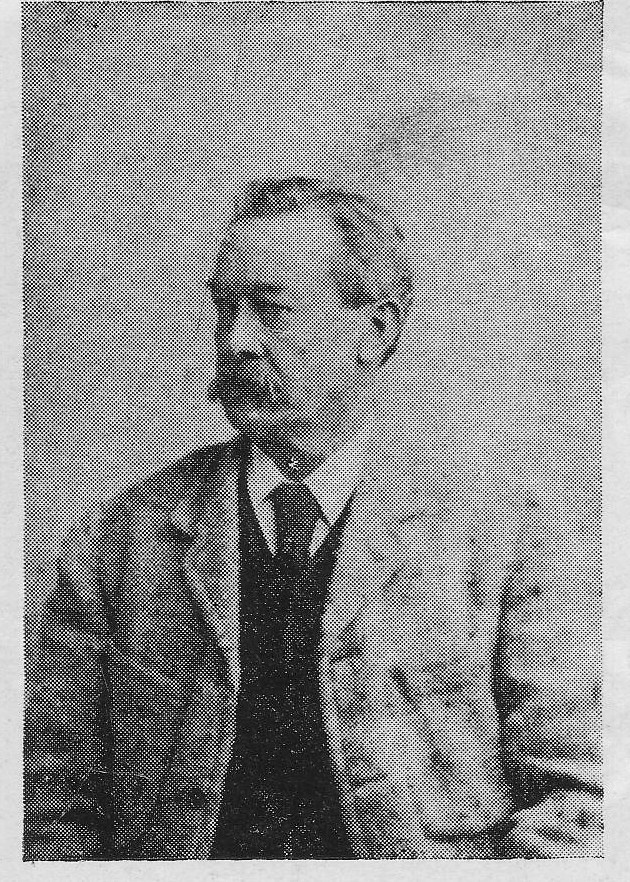
Various concerts and socials were held. In May 1856 a Grand Highland Concert at the Theatre Royal included among the performers Duncan MacKay formerly piper to the Duke of Leeds and Aeneas Rose Piper to the Duke of Atholl. Another concert was held in December, the proceeds of which were to go to the fund for erecting a National monument to the memory of Sir William Wallace. The pipers this time were Aeneas Rose and Charles Scott. The first Annual Highland Games organized by the Society took place on Tuesday, August 26, 1856, in the Barrack Park. First prize for piobaireachds was a Handsome Mounted Pipe and second prize a Handsome Silver mounted Chanter. First for Reels was a Handsome Sporran, and second a Handsome Sgian Dubh. At the second gathering on Wednesday 26th August 1857 first prize for piobaireachd was £5 and a Silver Medal. This went to Gilbert Gordon, piper to Lord Panmure. Second prize of two guineas went to Archibald Forbes from Perthshire. For Reels the first prize of a handsome timepiece gifted by a local watchmaker went to Duncan McDougall from Perth with Gilbert Gordon taking second prize of £1.10s. In order to encourage local talent in piping and dancing all Dancing Masters and persons going from place to place practising pipe playing and dancing as a means of livelihood were excluded.
At the 1858 gathering in Barrack Park, at which the Duke of Atholl was chieftain, all the piping competitors were from Blair Atholl or Perth, but two years later two Dundee pipers took part in a confined contest.
The report mentioned the theft of a gold watch and chain from the person of a gentleman present at the Games.
In 1859 at the fourth annual Gathering the first prize for Piobaireachd went to MacGregor from Aberfeldy and second to John Gray from Aberdeen. In the Reels Duncan Campbell piper to the Marquis of Breadalbane was first and John Gray second. The report mentioned the theft of a gold watch and chain from the person of a gentleman present at the Games. The guilty party had made his escape before the owner discovered his loss, and had not yet been captured.
In 1862, the Gathering took place at Rollo’s Pier, Magdalen Yard Road and it was thought that the poor attendance was due to the out of the way location. There were seven competitors for piping. First prize for marches went to James Stewart, the Earl of Dunmore’s piper and second prize to John Coutts piper 10th FHVR. James Stewart was also first in playing Reels, with W.F. Forbes of Dundee second. “An extra prize, a handsome set of miniature Highland bagpipes, mounted with silver, was presented to the Association by Mr John Thow, bagpipe maker, Seagate, to be competed for by pipers belonging to Dundee. Four competed. The successful competitor was John Coutts, piper 10th FHVR, and James Speed, Dundee, second prize, 2s.6d.”
By 1863, the Association was in decline when a report stated, “The public will think that things are far behind with the Association, when none of the meetings are taking place this year in connection with it. Surely its vitality is far gone when the last meeting only two members attended.”
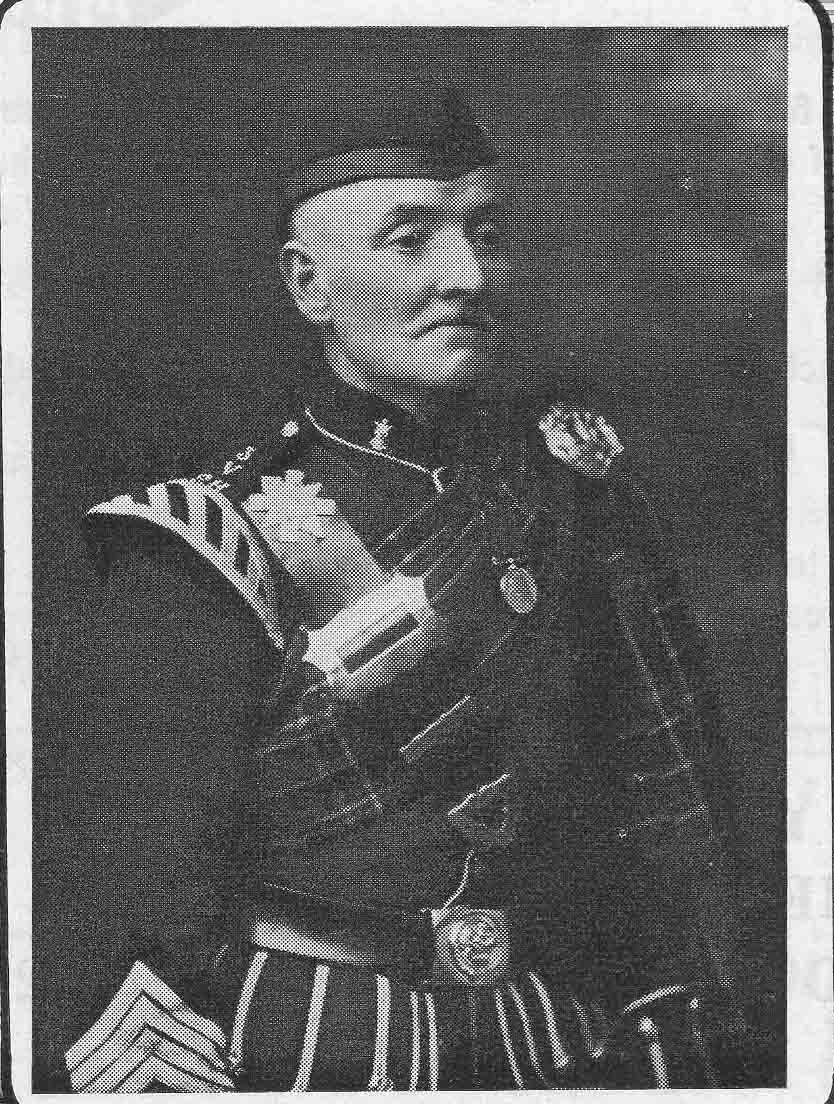
The report of the Dundee Highland Games in August 1864 remarked that there was scarcely any competition in pipe-playing. For march playing, P-M John Stewart was the winner but the second prize was not awarded. “Mr Thow, bagpipe maker, Seagate, offered a handsome set of miniature bagpipes mounted with silver and ivory, and valued at about £2.5s for the best player of a lament, but no person came forward to compete for the prize.”
P-M John Stewart 1835-1913 was an uncle of G.S. McLennan and the subject of a march composed by him.
At the 1869 Dundee Highland Games, the pipers of the Dundee Highland regiment were in attendance and played at intervals. The prize winners for playing Strathspeys and Reels were H Stewart, Fincastle, 20s, H Douglas, 78th Highlanders 10s, and John Stewart, Dundee Volunteer Highlanders, 5s. There were five competitors. The judges for the reel playing and the dancing were Captain Forbes, 78th Highlanders, Captain Don of the Dundee Highland Volunteers, Mr Gilbert Gordon, Perth and Mr Thow, bagpipe maker, Dundee.
In 1870 it was reported that the annual Highland Games had declined in recent years as the Dundee Highland Society had become all but defunct, but that year a new Highland Society had been formed including the few remaining members of the old.
In 1870 it was reported that the annual Highland Games had declined in recent years as the Dundee Highland Society had become all but defunct, but that year a new Highland Society had been formed including the few remaining members of the old. The Highland Games were held on Saturday 18th June in the Barrack Park. There were two Highland dancing events, Highland Reels and Gillie Callum and a piping competition for playing strathspeys and reels. The first prize of £1 went to J Coutts of Dundee, second prize 10 shillings to John Ramsay of Dundee who was blind and third 5 shillings to J Stewart.
In 1872, the Dundee Celtic Club was founded. This report appeared:
These popular games which, since the demise of the former Dundee Highland Association, have been in the hands of a few enterprising gentlemen, not necessarily sons of the Gael, are this year to be held under the auspices of the Dundee Celtic Club, a society which, though only in its infancy, has already accomplished a good deal of work. The club has for its president the Dean of Guild, while several of the Town Council and of the leading gentlemen in town are members. We understand an imposing procession will leave the Royal Hotel the day of the gathering, and march to the park headed by the military band. We notice on the programme a number of entirely new competitions, such a wrestling match and an amateur local race. There will also be a prize to the best dressed Highlander A whole box of Highland ornaments has arrived from Edinburgh, from which large selections will be made; and Mr Kelt Murraygate, himself member of the club, is executing an extensive order in the shape medals. It certainly is very creditable to the Dundee Celtic Club that it is able, so soon after its formation, to offer the competitors upwards of fifty pounds worth of prizes; and we trust the weather, on the 20th of July, will be favourable, so that the public and especially the gentlemen in charge of the arrangements, will not be disappointed.
The third annual Highland Gathering of the Dundee Celtic Club in July 1874 in the Barrack Park was witnessed by about 7000 spectators. The Dundee Courier told the story of the day:
Shortly after the games had begun, part of the enclosing fence within which the competitions were held, was broken down by the pressure of the crowd and hundreds at once rushed through the breaches into the arena. A number of the intruders were caught by the police and members of the club and dragged back to the fence, but while this was being done the crowd broke into the arena at other places. The police and club members were now completely overpowered, and this being observed by the crowd which still remained outside the fence all cleared it at once, and came forward almost en masse into the arena and contracted it to such small limits that the games had to be stopped for nearly half an hour. The police and others attempted to clear the ground, but this was found to be entirely in vain, for as soon as the crowd was driven back in one part they came forward in another. The struggle continued until the crowd obtained the mastery. Mr McFarland, of the Music Hall, appealed to the people, for the sake of their own good name as citizens of Dundee, to retire from the arena, as unless that was done it would be impossible to proceed. This appeal was derisively cheered and laughed at. It was then resolved again to try physical force to restore order. A number of boards about 12 or 14 feet in length were brought into requisition, and several groups of six or eight men, each armed with a board, proceeded in press-gang fashion to drive back the crowd. A trial of strength now took place between the press-gang men and the crowd, for the latter, as soon as a collision took place, seized the board, and instead of being made to retreat they drove back their assailants. For a considerable time the greatest uproar and confusion prevailed, but by and by the crowd was driven back to the fences, and there they remained till the close of the games about seven o’ clock. Such disgraceful conduct on the part of a crowd has not been witnessed for many years in Dundee.’
In 1875 an advertisement stated, “Dundee Highland Games. The Dundee Celtic Club beg to inform the Public that they have no connection with the above Games, but that their Annual Highland Gathering and Games will take place under distinguished patronage on 17th July next, when about £70 will be given as Prizes. For particulars see Handbills and future advertisements. By order of the Committee. Robt McNaughton, President.”
No report of either of these events has been found.
In 1878, the at the seventh annual gathering of the Dundee Celtic Club in the Barrack Park the weather was very favourable and over 8,000 attended with £200 (about £30,000 in today’s currency) being taken at the gate. A new attraction for pipers was the handsome sum of £20 and the Dudhope Gold Medal presented by Captain Campbell Rankine of Dudhope, the President of the Club. This was split into two prizes for the piobaireachd with £15 for first and £5 for second. A third prize of £2 was given by the Club. The competition began early in the day, there were 15 entries and the event occupied six or seven hours. The judges, Captain Archibald Leslie, Mr Gordon L Money and Mr Paton were specially selected by Captain Rankine. The results were, Piobaireachd: PM Ronald MacKenzie, 78th Highlanders; 2. Alexander MacDonald, piper to the Earl of Fife; 3. G McPherson, piper to the Dowager Duchess of Atholl. Marches and Quicksteps: 19 entries. 1. Gold Pendant. William McLennan, Dundee; 2. Sporran. James McDonald, Dundee; 3. Pair hose. J Duncan, Dundee. Reels: 19 entered. 1. 23s. R McKenzie; 2. 13s. James Robertson, Edinburgh; 3. 10s. W Murray Dundee. Best Dressed at own expense. 1. James Duncan, Dundee; 2. James Robertson.
The 8th Annual Gathering was on Saturday, July 19, 1879, in the Barrack Park, in disagreeable weather, with rain all day. Despite this the turnout of competitors and spectators was large. The committee, judges and competitors assembled at the Queen’s Hotel at 2pm and headed by a band composed of the competing pipers marched to the Park by Nethergate, High St, Reform St, Albert Sq, Victoria Rd, Dudhope St, and Constitution Rd, arriving at the ground shortly after 3pm. The judges for dancing and piping were Messrs Stewart, MacKenzie, Matheson, Meldrum and Fenwick. The results were, Best dressed: 1. J Robertson, Edinburgh; 2. D Grant, Tomintoul. Piobaireachds: 1. G MacPherson, Dunkeld House; 2. William MacLennan, Dundee. Marches and Quicksteps: 1. J Robertson, Edinburgh; 2. PM Norman MacSwayde, Highland Borderers, Stirling. Reels: 1. W Sutherland, Airdrie; 2. James Moon, St Martins; 3. PM Norman MacSwayde.
In 1880 the 9th annual games were on Saturday 24th July. Best dressed: 1. Sgt Longair, Aberdeen; 2. J Robertson, Edinburgh. Piobaireachd: 1. George MacPherson, Dunkeld; 2. Norman MacSwayde, Stirling and A MacDonald Elgin, equal. Marches and Quicksteps: 1. M McKinnon, Dundee; 2. J M Gillies, Aberdeen; 3. P McDuff, Blair Atholl.
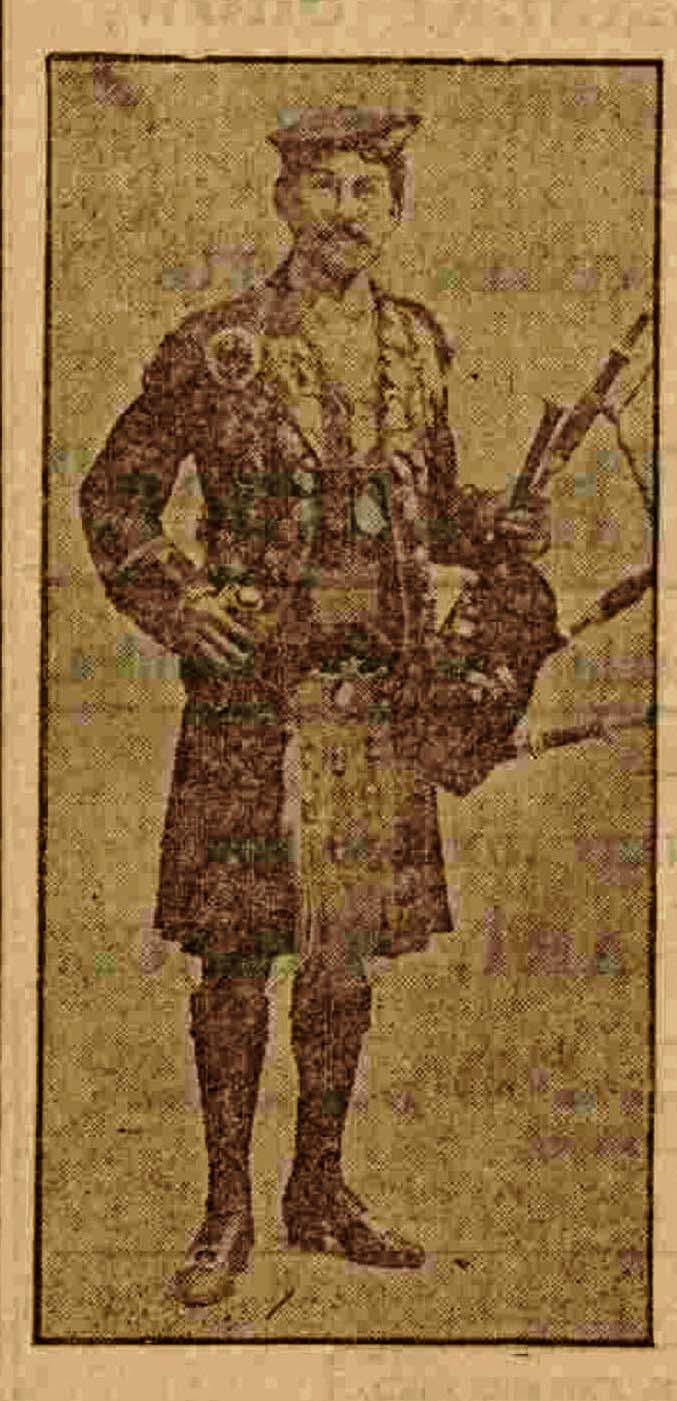
In February 1881 an article stated that the Dundee Association of True Highlanders had been formed and in August the paper reported that the Dundee Foresters held Highland Games in the Barrack Park, with only one piping event. The winner was local man W Murray, with Alexander MacDonald second and Albert Johnstone third.
In April 1882 at a special meeting of the Dundee Celtic Club it was agreed that the games would be held and a fund against loss would be raised. Members present subscribed a total of £25 and it was hoped the rest could be raised from other members.
Nothing more was reported until 1887 when the Games where held on 11th June at the Barrack Park. Papers reported, ‘The Dundee Celtic Club’s Sports which had ceased since 1881, were resuscitated on Saturday and proved signally successful. Taking advantage of Jubilee year the Club has been resuscitated, new blood introduced, and with the Earl of Airlie as Chieftain and Colonel Smith as President, there seems every likelihood of the Club more than regaining the ground it has lost during the past few years.’ The piping results were, Piobaireachd: 1. Angus MacRae, Lochearnhead; 2. J MacDougall Gillies, Aberdeen; 3. J MacColl, Oban. Reels and Strathspeys: 1. A MacRae; 2. A McColl, Kilbarchan; 3. John MacKay, Paisley. Marches: 1. A MacRae; 2. J MacColl; 3. J MacDougall Gillies. Best Dressed, 1. J MacDougall Gillies; 2. D Anderson, Dundee.
In 1889 the Gathering was on 13th July at the Barrack Park in bright and warm weather. The piping judges were William Duff, Pitlochry, William Melville, Blairgowrie and J Coutts, Dundee. Marches: 1. G Stevenson, Dundee; 2. Albert Johnstone, Dundee; 3. John Wilson, Callander. Reels and Strathspeys: 1. G Stevenson; 2. John Wilson; 3. Albert Johnstone. Best dressed: 1. J Wilson; 2. D Anderson, Dundee.
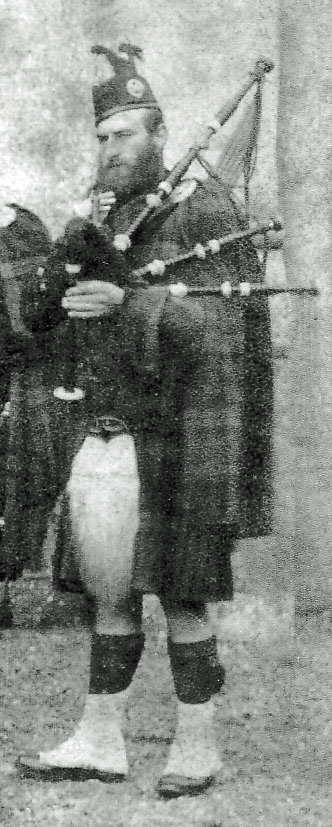
In 1890 the Games were held in West Craigie Park on 14th June in weather described as all that could be desired. This was the first time the games had not been in the Barrack Park but the public did not appear at all inconvenienced with the change. The judges for piping and dancing were Mr Duff, Mr Melville and Mr Beaton, Glenisla. Marches 7 competitors: 1. W MacLennan, Edinburgh; 2. Albert Johnstone, Dundee, 3. Corporal G Stevenson, KOSB, Berwick. Reels and Strathspeys: 1. W MacLennan; 2. Corporal Stevenson; 3. Albert Johnston.
In 1891 the Games were at West Craigie Park on 30th May, in bright sunshine with an attendance of 6 to 7 thousand. The judges again were Messrs Duff, Melville and Beaton. Marches, 8 competitors: 1. Albert Johnstone; 2. D A Campbell, Glasgow; 3. J MacKenzie, Edinburgh. Reels and Strathspeys: 1. Albert Johnstone, 2. D A Campbell, 3. John MacPherson, Perth. Marches, Local 7 competitors: 1. Angus MacLeod, Dundee; 2. Andrew McFarlane, Dundee, 3. Alex Key.
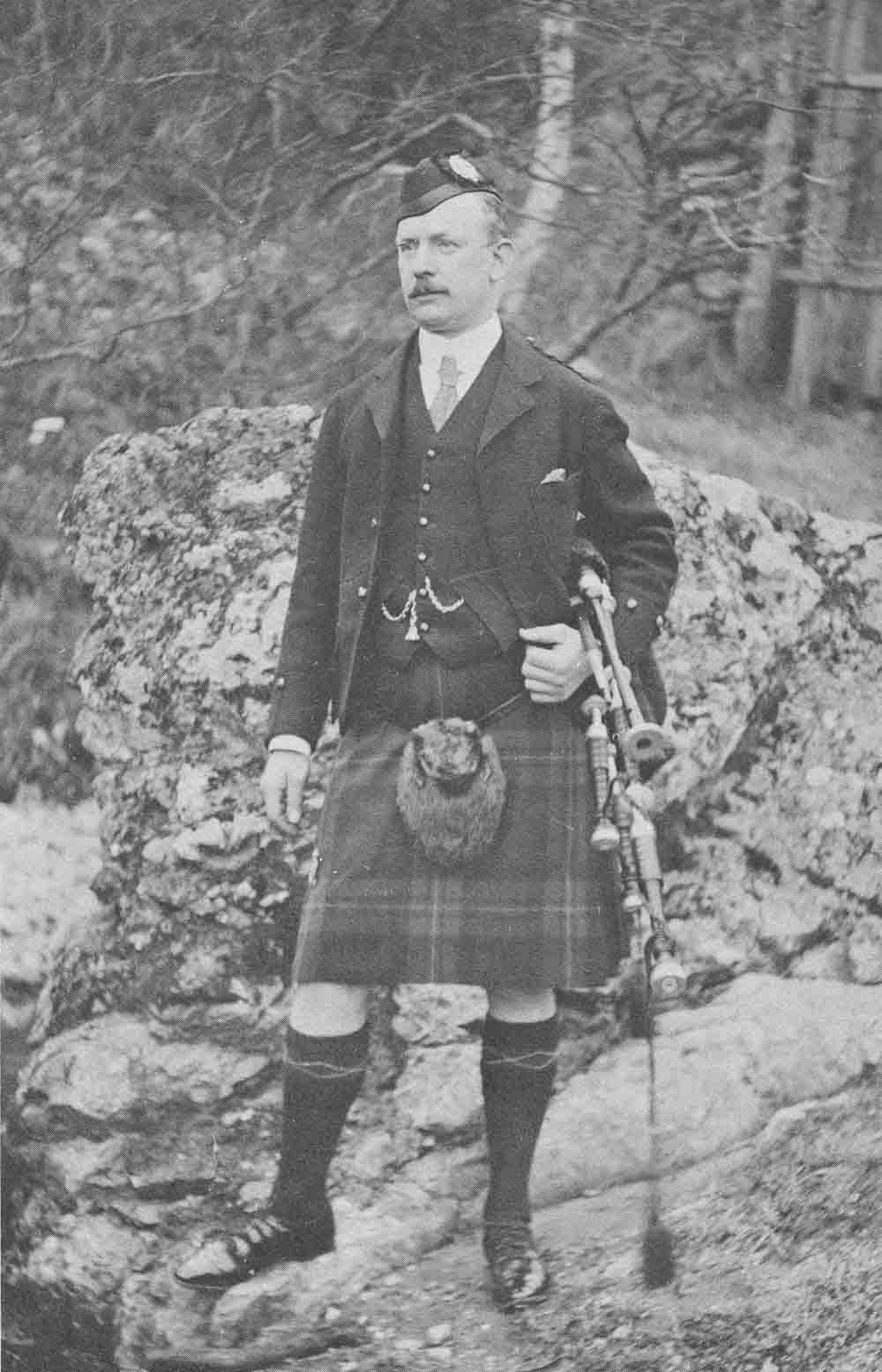
In 1892, the Games were on 18th June at West Craigie Park, with 25 events and a good attendance despite the heavy rain showers. There were 15 competitors for the marches. 1. John Wilson, Callander; 2. Donald Campbell, Glasgow. Reels and Strathspeys, 14 competitors: 1. Albert Johnstone The local Marches had four competitors: The winner was William Sim with Malcolm McKinnon second. Six competitors for the dress prize presented themselves on the board but the effect was somewhat spoiled by a drenching shower. J M MacLeod, Kirkcaldy was awarded first and Alexander Hutcheon, Dundee second.
In 1894, the gathering was on Saturday 9th June at Carolina Port where in poor weather several thousand spectators watched 24 events. The committee and competitors had assembled at the Queen’s Hotel at 2pm and marched to the grounds, led by the pipe band of the 3rd VBRH Black Watch and P-M John Stewart, hon piper to the Club. On arrival the band marched round the enclosure playing stirring tunes, a stalwart Highlander bearing a huge Lochaber axe, the emblem of the Club, bringing up the rear. The piping and dancing judges were Duncan MacDougall, Aberfeldy, Henry Dryerre, Blairgowrie and J C Beaton, Glenisla.
In the opinion of the judges the pipe playing was fairly good, but among the players there were no pipers of outstanding merit. There were only eight entries, compared with 13 the previous year. The results were, Marches: 1. Gavin MacDougall, Aberfeldy; 2. Charles Dunbar, Glencorse; 3. Angus MacLeod, Douglasfield, Dundee. Reels and Strathspeys: 1. A MacLeod; 2. C Dunbar; 3. G MacDougall. Local Competition for Reels and Strathspeys: 1. A Massie; 2. J Ritchie; 3. W Finney. Interestingly Gavin MacDougall was competing although his father was judging.
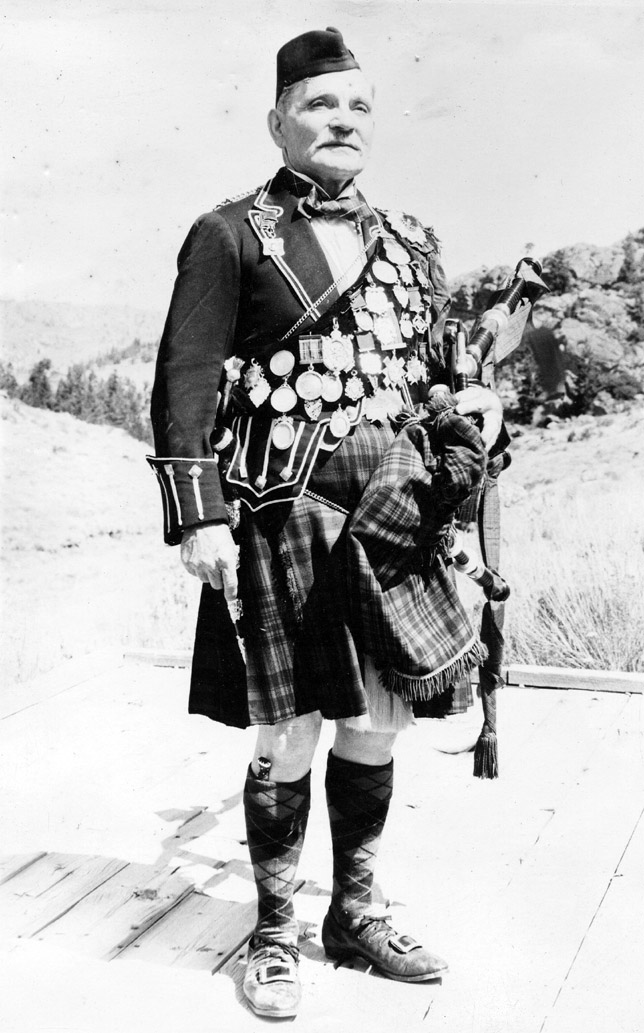
In 1896, the Games were on 27th June at Carolina Port with an attendance of 4 to 5 thousand. The judges for piping and dancing were William Rose, J C Beaton, and William Stuart. Marches: 1. D C Mather; 2. PM John Cameron; 3. Charles MacDonald. Reels and Strathspeys: 1. D C Mather; 2. Angus MacLeod; 3. PM John Cameron. Reels and Strathspeys confined: 1. Donald MacKenzie; 2. James Ritchie; 3. James Anderson.
The Games in 1897 were on 12th June at Carolina Port recreation grounds. Marches: 1. D C Mather; 2. Angus MacRae; 3. Gavin MacDougall; 4. W A Hosie. Reels and Strathspeys: 1. Angus MacRae; 2. Gavin MacDougall; 3. Murdo MacKenzie; 4. W A Hosie. Best Dressed: 1. Angus MacRae; 2. D C Mather.
No more reports of the Games have been found.
Several of these Dundee competitors had links with the USA or Canada.
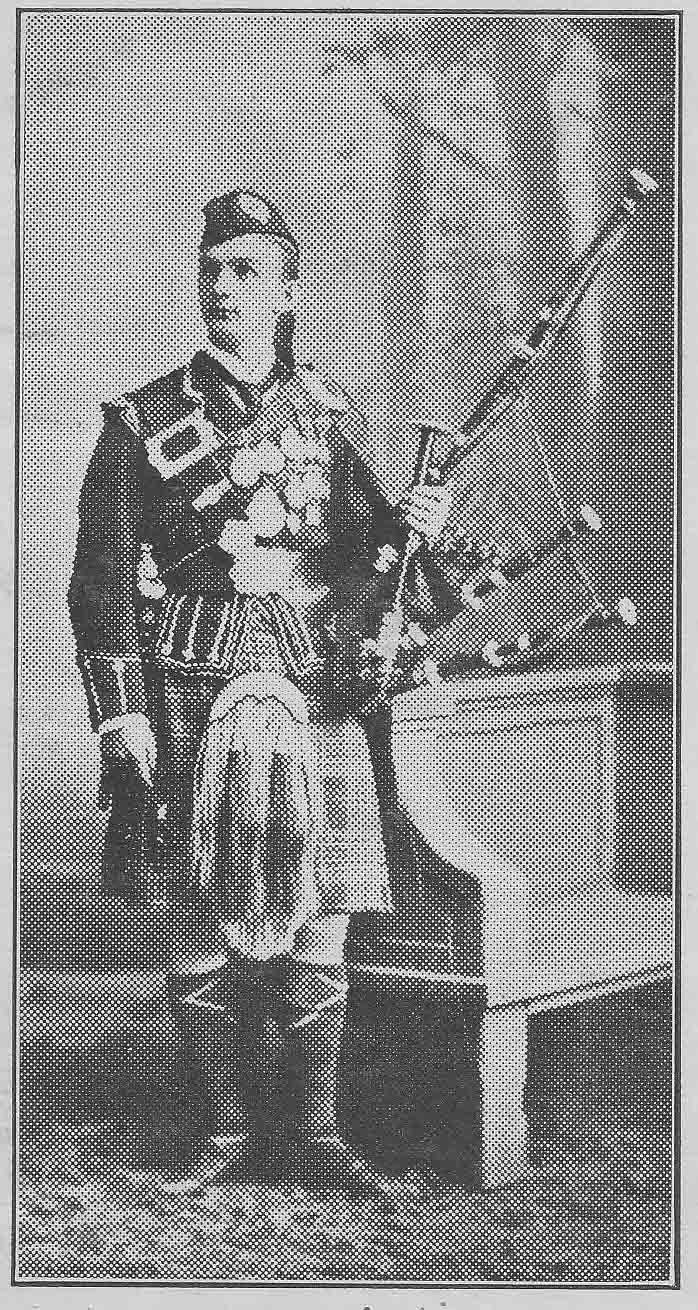
Norman MacSwayde or MacSwayed, born 1845, was Pipe Major of the Stirlingshire Militia. He went to Canada in 1891 and became Pipe Major of the Toronto Highlanders. He returned to Scotland in 1901 and died in 1906.
John Wilson, Callander, was an uncle of John Wilson 1906-’79, an important figure in Canadian piping.
Albert Johnstone, born 1864, toured widely in Europe and America as leader of the Clan Johnstone Troupe of pipers and dancers. The troupe then became part of the Belleville Kilties, billed as Canada’s Greatest Concert Band. After years of world tours Albert settled in Belleville, where he died in 1938.
William McLennan, born 1860, was a cousin of G.S. McLennan. He died of meningitis in Montreal in 1892 when on tour with Scott Skinner.
David C. “DC” Mather, born 1870, went to the USA in 1901 and was a prospector in Montana where he died in 1943.
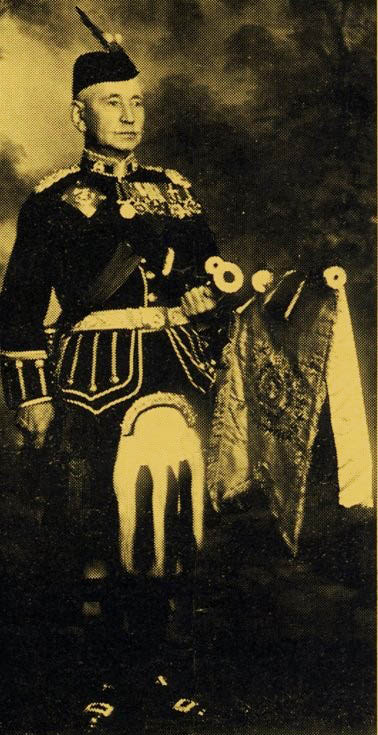
Charles Dunbar, born 1871, served with the Seaforth Highlanders, Royal Scots and Gordon Highlanders. In 1911 he emigrated to Canada where he served with the 91st, and was commissioned in 1917. He died in 1939.
In 1920, the Dundee Highland Society advertised a Highland Gathering at Rockeknowe, Broughty Ferry, on Saturday, June 26th, at 2.30pm. There would be pipe music, dancing, concerts, palmists, tennis, clock golf etc, etc. Tea would be served in the grounds and members and friends were invited.
On 29th November 1937 a newspaper article referred to the old Celtic Club:
Three-hundred people attending the Dundee Highland Society’s ceilidh in Ingram’s Rooms on Saturday heard from the chief, MacGillivray of MacGillivray, of a discovery of a relic from the seventies. It is a hand painted banner of the old Dundee Celtic Club for attachment to pipes. Bearing the coat of arms of the city, the banner also has the Royal Shield of Scotland. The last piper who flourished the banner on his pipes was Pipe Major John Stewart, well known Dundee man, who died in 1913 at the age of 72 years. The banner was left with Mr Robert MacKay, 45 Forfar Road, Dundee, an old member of the association. Mr MacKay, having carefully preserved the relic, has now presented it to the chief of Dundee Highland Society. MacGillivray of MacGillivray will hold the banner as chief, and it will precede him at functions where the official piper is in attendance. Dundee Highland Society was inaugurated in 1818, but about 1850 its activities somewhat diminished. Interest having revived, between 1870 and 1880 it was known as Dundee Celtic Club, and in 1880 the name changed to Dundee Association of True Highlanders. Reversion to the original name of Dundee Highland Society took place in 1898.
The last part of this report does not fit with the earlier newspaper reports which used the Celtic Club name throughout the 1880s and 1890s.
Jeannie Campbell MBE is one of the greatest authorities on the history of piping, drumming, pipe bands and bagpipe makers. She has written Highland Bagpipe Makers and More Highland Bagpipe Makers, two excellent books on bagpipe makers, and her most recent book, Pipe Bands, is a massive work of more than 800 pages, and recently had its second printing. In 2014, Jeannie Campbell was made a Member of the British Empire for her pioneering work and service to piping.


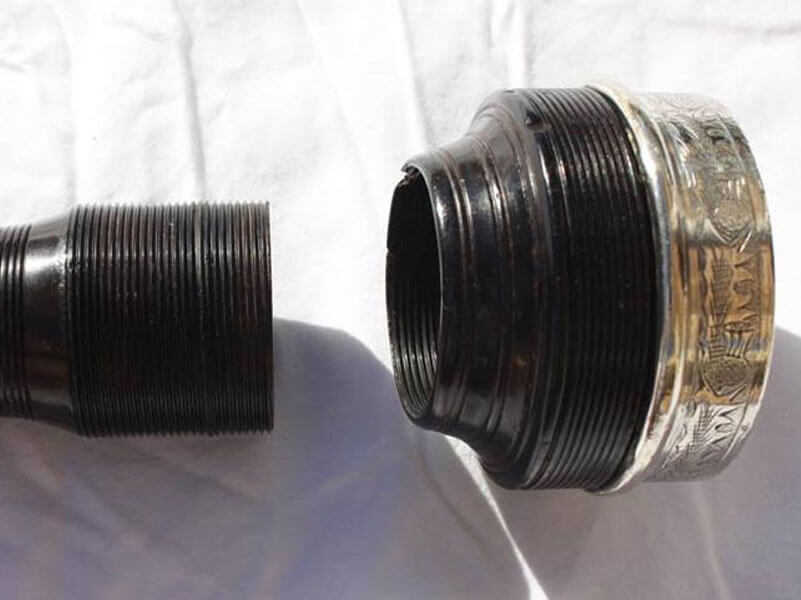
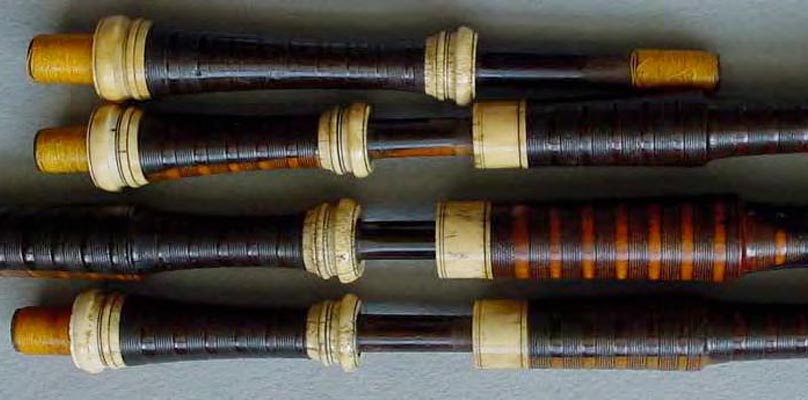
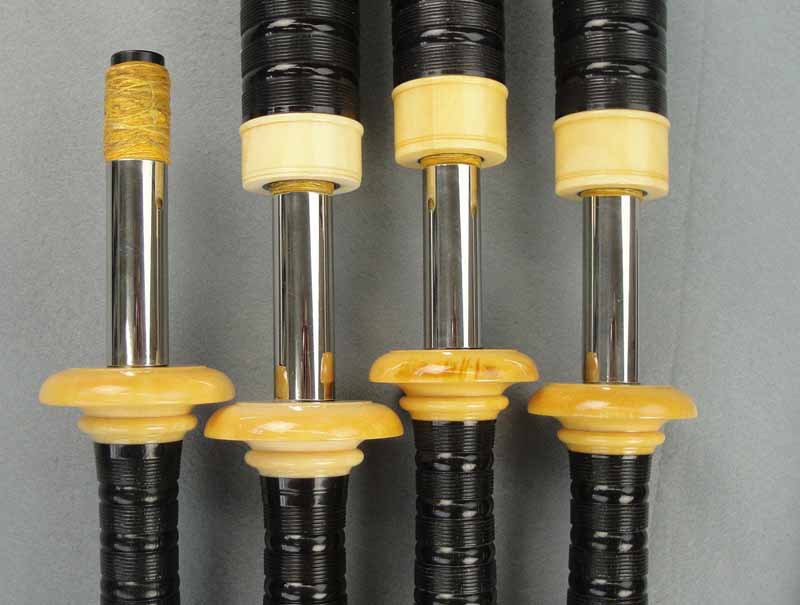
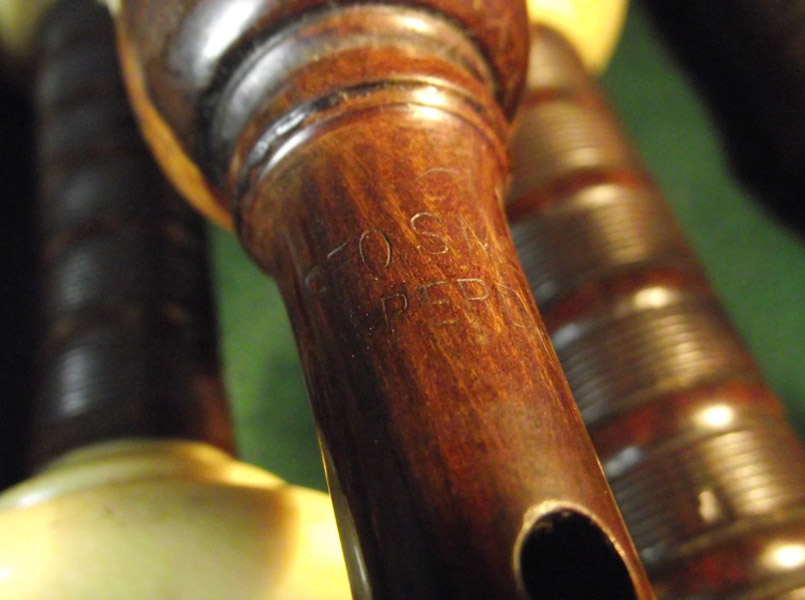
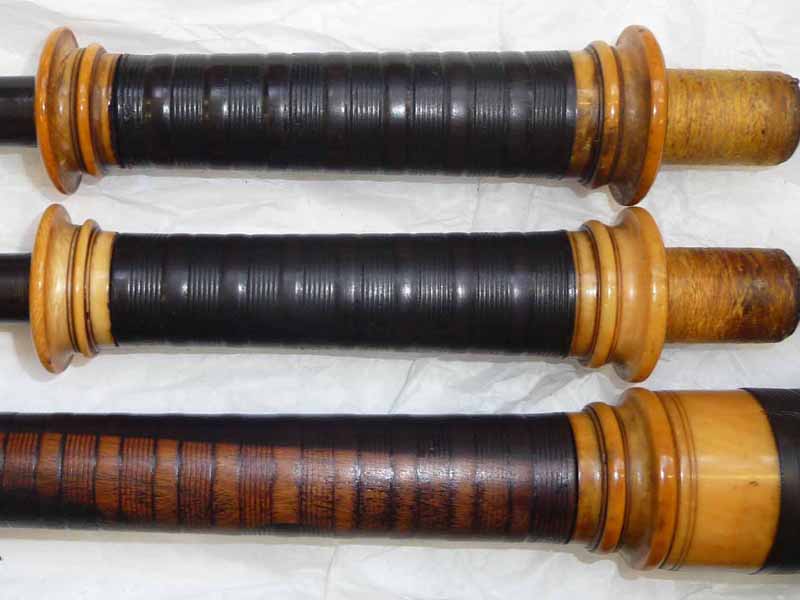
NO COMMENTS YET